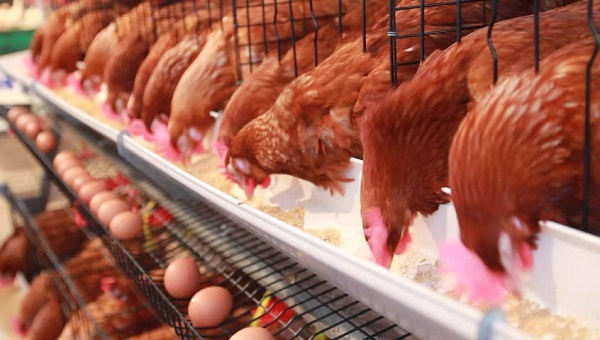How FSRP project resurrected Ghana poultry industry

He said the industry was witnessing a massive revival towards building sustainable businesses in the value chain to bridge the country’s food deficit gap.
Mr Agyeman said this in an interview with the Ghana News Agency after some selected commercial poultry farmers in the Ashanti Region took delivery of about 130,000-day-old chicks to revamp the poultry sector.
The distribution is part of activities under the first phase of the Poultry Intensification Scheme under the West Africa Food System Resilience Programme (FSRP).
The project, being implemented by the Ministry of Food and Agriculture, is to revamp the broiler industry in Ghana.
Other regions in line for day-old chicks deliveries under the scheme are the Bono, Eastern, Greater Accra, Central and Volta, to contribute to the MOFA-FSRP mission to revamp the poultry industry in Ghana.
The Poultry Intensification Scheme is being run in phases under World Bank funding, with each beneficiary receiving input credit in the form of about 160, 000 day-old chicks, 180,000 kilograms of feed, as well as supplies of vaccines, in the first round of allocations.
They will also be granted training in best modern practices and climate-smart technologies within the poultry industry.
The farmers will also have access to matching grants to procure equipment to support post-production processing and cold storage.
The scheme targets the production of approximately two million broiler birds on a yearly basis, under a $12.5 million World Bank facility.
Under the programme, some 22 commercial anchor farmers nationwide will be selected and supported to produce, process and market two million birds annually over the next three years.
The criteria for participation in the scheme demands that applicants must have been in poultry (broiler) production, processing and marketing within the last five years.
They must also be registered with the Registrar General or other statutory body and must have linkages with small holder farmers.
The commercial farmers are among other things required to be in the databases of the District Directorate of Agric of their operational areas; must include at least 10 per cent women and 10 per cent youth in both upstream and downstream of the value chain; and must be compliant with requirements of regulatory bodies like the Environmental Protection Agency, Ghana Fire Service, the Food & Drugs Authority, Ghana Standards Authority and the World Bank.
The scheme will feed into the PFJ 2.0 targeted poultry self-sufficiency output of 400,000 metric tonnes per year by 2028.
Mr Agyeman said the project, anchored on three themes of sustainability, ownership and public/private engagement, “is and attempt to sustain the broiler value chain”.
He said local hatcheries would be revived and youth incubation programmes held to build and sustain businesses in the value chain.
Dr Abdul Razak Okine, a Deputy Director, Animal Production Directorate, Ministry of Food and Agriculture, said the project, which was in line with Government’s Planting for Food and Jobs 2.0, was exciting farmers nationwide.
“It is attracting many young people and women and will hopefully help us close the food deficit gap…”
The West Africa Food System Resilience Programme (FSRP) is a World Bank funded programme, championed by ECOWAS for participating countries.
It is to strengthen food system risk management, improve the sustainability of the agricultural productive base and harmonise agricultural markets in the West African sub region.
Participating countries include Burkina Faso, Mali, Niger, Chad, Sierra Leone, Togo and Chad.
In Ghana, the project is focusing on the intensified production, marketing and consumption of wholesome Rice, Maize, Broiler Poultry, Tomatoes and Soyabeans for the poultry industry.





